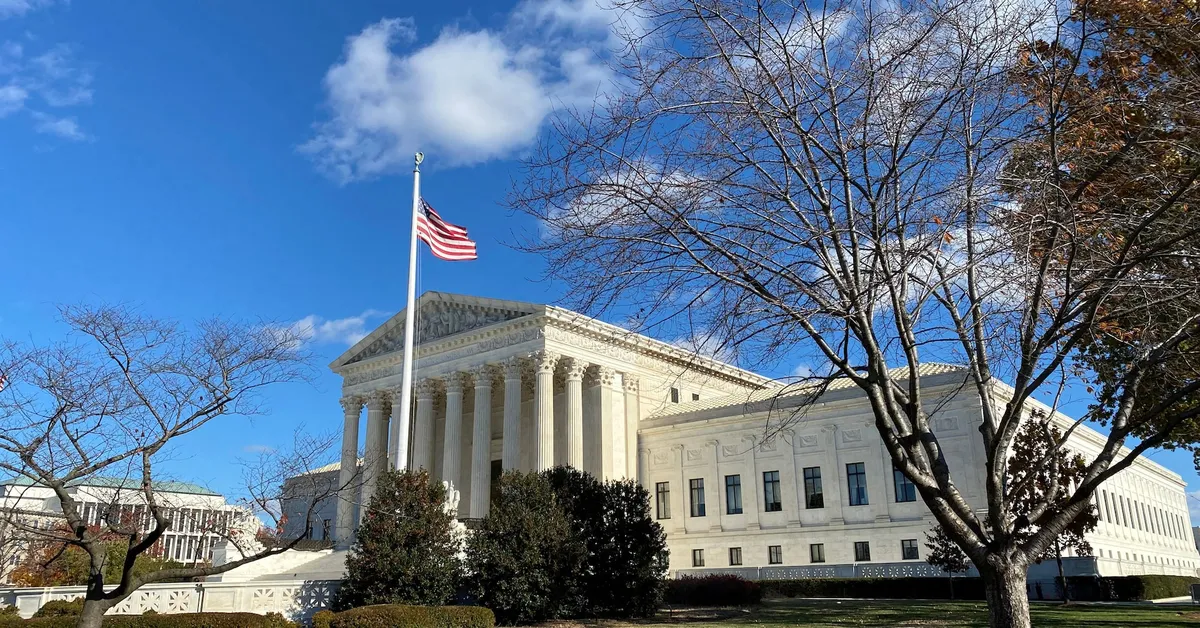
WASHINGTON, June 26 (Reuters) - In a significant ruling on Thursday, the U.S. Supreme Court has allowed South Carolina to withdraw funding from Planned Parenthood under the Medicaid health insurance program. This decision strengthens the ongoing efforts by Republican-led states to restrict public funding for the reproductive healthcare and abortion provider. The ruling, which passed with a 6-3 vote and was authored by conservative Justice Neil Gorsuch, overturned a lower court's decision that had previously stopped South Carolina from ending the participation of the regional affiliate, Planned Parenthood South Atlantic, in the state's Medicaid program due to its provision of abortion services.
The Supreme Court's conservative justices formed the majority in this ruling, while the three liberal justices dissented. The case focused on whether Medicaid recipients, who rely on this joint federal and state health insurance program for low-income individuals, have the right to sue to enforce a provision of U.S. law allowing them to seek medical assistance from any qualified and willing provider.
In reaction to the ruling, Alexis McGill Johnson, President of the Planned Parenthood Federation of America, expressed her concern, stating, "Today, the Supreme Court once again sided with politicians who believe they know better than you, who want to block you from seeing your trusted healthcare provider and making your own healthcare decisions." She further emphasized that the ongoing efforts to defund Planned Parenthood are part of a larger campaign to eliminate the organization altogether and impose a nationwide ban on abortion.
On the other hand, South Carolina Attorney General Alan Wilson, a Republican, welcomed the Supreme Court's decision. He articulated that this ruling is fundamentally about who governs South Carolina – elected leaders or outside activists and unaccountable judges. "We're glad the court got it right," Wilson stated.
Since the Supreme Court's 2022 reversal of the landmark Roe v. Wade decision, which had legalized abortion across the country, many Republican-led states have enacted stringent restrictions. Some have instituted near-total bans, while South Carolina has implemented prohibitions after six weeks of pregnancy.
Planned Parenthood South Atlantic operates clinics in the South Carolina cities of Charleston and Columbia, providing essential services to hundreds of Medicaid patients each year. These services include physical examinations, screenings for cancer and diabetes, pregnancy testing, contraception, and other vital healthcare needs.
The legal battle began in 2018 when the Planned Parenthood affiliate and a Medicaid patient, Julie Edwards, filed a lawsuit after Republican Governor Henry McMaster ordered state officials to terminate the organization’s participation in Medicaid, labeling any abortion provider as unqualified for family planning services. The plaintiffs contended that their lawsuit was supported by an 1871 U.S. law that facilitates challenges against illegal actions by state officials, asserting that the Medicaid law protects a profound right to choose one's healthcare provider.
The South Carolina Department of Health and Human Services, represented by the conservative legal group Alliance Defending Freedom and backed by the Trump administration, argued that the Medicaid provision in question does not fulfill the stringent criteria necessary to recognize private rights. In his ruling, Justice Gorsuch sided with South Carolina, maintaining that the law failed to provide a clear and unambiguous assertion of an individually enforceable right. He further commented that allowing private enforcement could detract from public interests, necessitating states to shift resources away from social services to legal battles.
In a dissenting opinion, Justice Ketanji Brown Jackson, joined by the other two liberal justices, expressed that the ruling could lead to significant harm for real individuals. She noted that it would deprive Medicaid recipients in South Carolina of their primary method to enforce a right expressly granted by Congress, stating, "The ruling will strip Medicaid recipients around the country of the ability to decide who treats them at their most vulnerable," highlighting that this is a fundamentally personal freedom.
Initially, a federal judge ruled in favor of Planned Parenthood, affirming that Medicaid recipients can sue under the 1871 law and that the state's defunding efforts violated Edwards' right to choose a qualified medical provider. In 2024, the 4th U.S. Circuit Court of Appeals also sided with the plaintiffs. The Supreme Court heard arguments for this case on April 2, marking a pivotal moment in the ongoing legal and political battles surrounding reproductive health rights in the U.S.